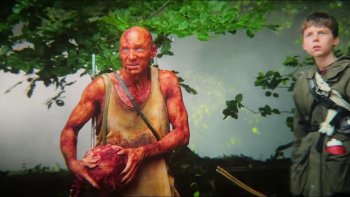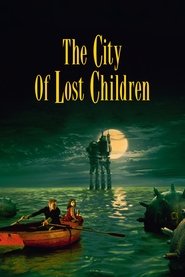
Video Sources 0 Views
![28 Years Later [HDCAM]](https://image.tmdb.org/t/p/w185/drg4tQuZatkA0pXR7YLvlxZNNEe.jpg)
28 Years Later [HDCAM]
In 28 days it began. In 28 weeks it spread. In 28 years it evolved.Jun. 18, 2025United Kingdom115 Min.R
Synopsis
28 Years Later 2025 Movie Download In English Hindi 1080p 720p
StoryLine:
“28 Years Later,” released on June 20, 2025, is the highly anticipated third installment in the “28 Days Later” series, bringing back director Danny Boyle and writer Alex Garland. This post-apocalyptic horror film fast-forwards nearly three decades after the initial Rage Virus outbreak, painting a grim yet compelling picture of a quarantined Great Britain. While continental Europe has seemingly eradicated the virus, the UK remains a dangerous, infected wasteland, cut off from the rest of the world.
The film introduces a new community of survivors living on Lindisfarne, a remote island village connected to the mainland by a heavily fortified tidal causeway. Among them is 12-year-old Spike (Alfie Williams), his scavenger father Jamie (Aaron Taylor-Johnson), and his ailing mother Isla (Jodie Comer), who suffers from a mysterious, non-Rage related illness. As part of a coming-of-age ritual, Jamie takes Spike to the mainland to hunt infected, where they encounter evolved, more intelligent “Alpha” variants of the Rage Virus, and Spike learns about a reclusive and feared survivor: Dr. Ian Kelson (Ralph Fiennes).
Driven by a desperate hope to find a cure for his mother, Spike secretly returns to the mainland with Isla, embarking on a perilous journey through the infected landscape. Their quest is fraught with danger, leading them to encounter not only new, terrifying forms of the infected, but also a stranded Swedish NATO soldier, Erik, who provides a glimpse into the world outside the quarantine. The film delves into themes of resilience, the meaning of family in a shattered world, and the constant struggle between humanity and the evolving threat, culminating in a poignant and ambiguous ending that explores the true cost of survival and opens the door for future installments in the newly planned trilogy.
Additional Links:

Original title
28 Years Later
TMDb Rating
7.5 71 votes
Director
Director
Cast
Spike
Jamie
Isla
Dr. Ian Kelson
Jimmy Crystal
Jenny
'The Alpha'/'Samson'
Erik Sundqvist
Rosey

![28 Years Later [HDCAM]](https://image.tmdb.org/t/p/w300/6WqqEjiycNvDLjbEClM1zCwIbDD.jpg
)
![28 Years Later [HDCAM]](https://image.tmdb.org/t/p/w300/5z314zU4iraY1ZhbIvgfpbMRVA7.jpg
)
![28 Years Later [HDCAM]](https://image.tmdb.org/t/p/w300/zav0v7gLWMu6pVwgsIAwt11GJ4C.jpg
)
![28 Years Later [HDCAM]](https://image.tmdb.org/t/p/w300/oZiMgkpqzFHCgfflObSRGTvHgFZ.jpg
)
![28 Years Later [HDCAM]](https://image.tmdb.org/t/p/w300/bPry9bdXbbEH1Q5TFKNK8AGc4DE.jpg
)
![28 Years Later [HDCAM]](https://image.tmdb.org/t/p/w300/7GaZjE8anu9pkii7tve1eGcWu6y.jpg
)
![28 Years Later [HDCAM]](https://image.tmdb.org/t/p/w300/3dtC3gapMgCaB4Xl4bPa0q1Tfi.jpg
)
![28 Years Later [HDCAM]](https://image.tmdb.org/t/p/w300/52bgpJl5HkSZtYMwCAASZJ4MLfT.jpg
)
![28 Years Later [HDCAM]](https://image.tmdb.org/t/p/w300/kbL4jAo7BCQQy2PzxscBkfGaMvg.jpg
)
![28 Years Later [HDCAM]](https://image.tmdb.org/t/p/w300/cA57VCL2yzrekEOvFQR7oJc0Ut0.jpg)























